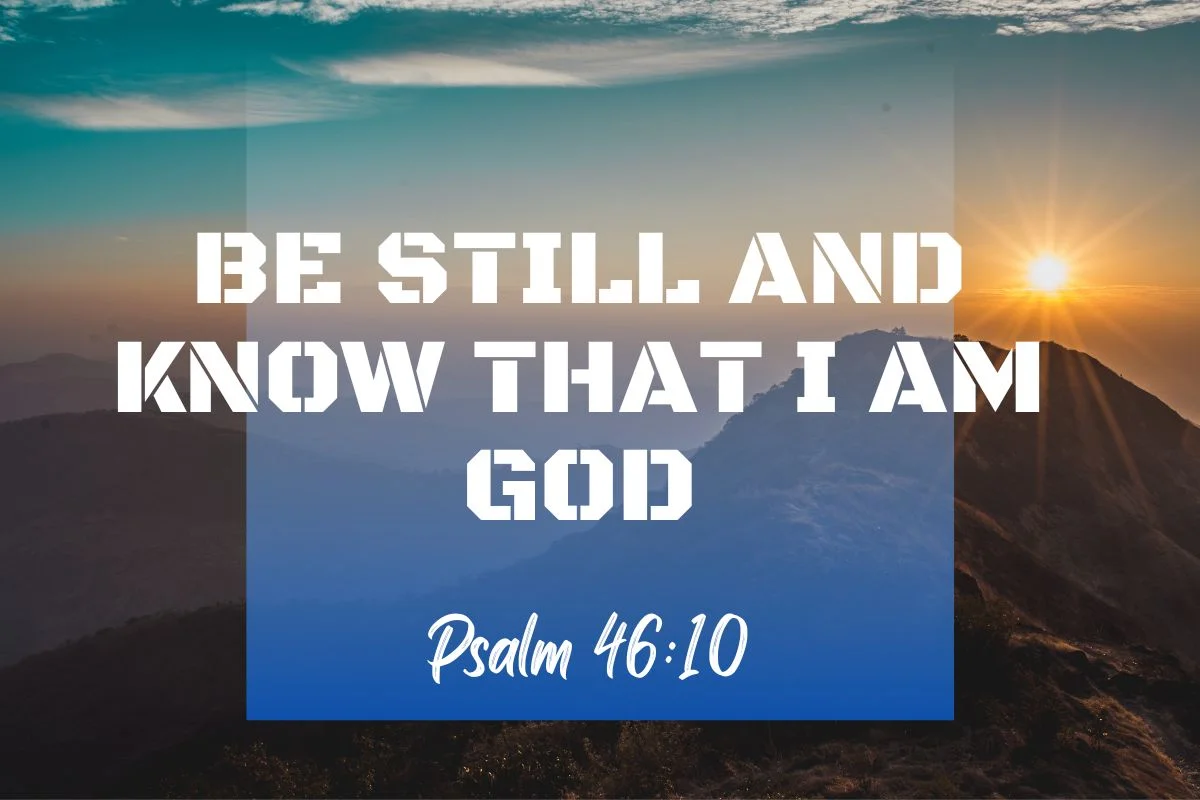THE SEED
“Be still, and know that I am God.” Psalm 46:10 ESV
God is interested in every aspect of our lives as His children. Apart from acceptance of Jesus as our Saviour, the other two requirements to gain full access to this great privilege are to know God as our Father and be still in God’s presence to receive direction and instructions. Being still before God reflects an expectant mood to hear from Him. It’s an intentional mode that we need to activate to create a conducive atmosphere to listen and hear Him. The record of the event in 1 Kings chapter 19 echoed the experience of Prophet Elijah in this respect. After his encounter with Jezebel and the threat to have him killed, in fear, Elijah ran for his life but the beautiful thing about this run is that fear did not drive Elijah to seek refuge in a boisterous place but it drove him to a place where he could hear from God, a cave and on the mountain. Just take a moment to think this through, we are humans and can’t avoid the moment like Elijah’s in our lives; which can be in different forms and ways. The question is, whenever you are challenged, do you still know God? Do you allow the situation to drive you to take false refuge in the club house or with strange women and men? Or do you take refuge in your stillness mode to hand over the situation to God and to hear from Him? Beloved, remember to be still in all situations and recognise the power of God that makes a great change.
BIBLE READINGS: 1 Kings 19: 1-9
PRAYER: Heavenly Father, please grant me the spirit to be still in your presence and know you as God over my situation. Amen
Tuesday, December 10, 2024
WÍWÀ NÍNÚ IDAKẸJẸ ÀTI MÍ MỌ ỌLỌ́RUN.
IRUGBIN NAA
“Ẹ duro jẹ kí ẹ sí mọ pé èmi li Ọlọ́run a o gbé mi ga nínú àwọn Kèfèrí, a o gbé mi ga li ayé” Orin Dáfídì 46:10
Ọlọ́run nífẹ̀ sí ohun gbogbo ti o ńṣẹ lẹ ni ìgbésí ayé wa gẹ́gẹ́ bí àwọn ọmọ Rẹ̀. Yatọ si gbigba Jesu gẹgẹbi Olugbala wa awọn àmuyẹ́ meji miiran lati ni aaye ni kikun si anfani nla yí, ni lati mọ Ọlọrun gẹgẹ bi baba wa ki a si tun wa niwaju Ọlọrun lati gba itọsọna ati ilana. Wiwa niwaju Ọlọrun, ṣe afihan ireti wa lati gbọ lati ọdọ Ọlọrun. Àkọsílẹ̀ ohun ti o ṣẹlẹ̀ nínú iwe ọba kíni ori kọkàndínlógún, sọ nípa ìrírí woli Èlíjà. Lẹhin ìgbà tí Èlíjà bá Jésíbẹ́lì pàdé àti ìhalẹ̀ mọ́ni láti pa á, nínú ìbẹ̀rù, Èlíjà sá fún ẹ̀mí rẹ̀; ṣùgbọ́n ohun tó dára jù lọ nínú sí sá àsálà yìí ni pé ìbẹ̀rù kò mú kí Èlíjà wá ibi ìsádi sí ibi kan tí ariwo ati ìdíwọ̀ gbe wa: ṣùgbọ́n ó mú lọ síbi kan ti o tilè gbọ lati ọdọ Ọlọrun, iho apata ati lori oke. Ya akoko kan sọ tọ lati ronu nipa eyi, awa jẹ eniyan ati pe a ko le yago fun irú àkókò báyì bi i ti Elijah ninu igbesi aye wa; eyi ti o le jẹ yọ ni orisirisi awọn ọna. Ibeere naa ni pe, nigbakugba ti o ba ni ipenija, ǹjẹ́ o tun mọ Ọlọrun bi? Ṣe o gba ipo yii laaye lati mu ọ lọ si ibi aabo eke ni ile ọtí tabi pẹlu awọn obinrin ati awọn ọkunrin ajeji bi? Tabi o gba idààbò bo ni ipo idakẹjẹ rẹ lati fi ipo naa le Ọlọrun lọwọ ati lati gbọ lati ọdọ Rẹ? Olufẹ ranti lati wa ni idakẹ jẹ́ẹ, ninu gbogbo awọn ipo ti o bá wà, ati ki o mọ agbara Ọlọrun ti o nṣe iyipada nla.
BIBELI KIKA: 1 Ọba 19:1-9
ADURA: Baba ọrun jowo fun mi ni ẹmi lati wa sibẹ niwaju rẹ ki o si mọ ọ bi Ọlọrun bori ipo mi Amin.
